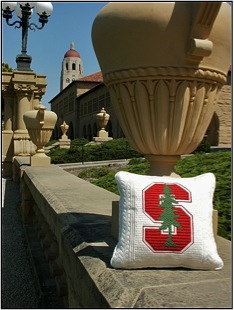Stanford Study: More Sleep Improves Hoops Performance
Posted by rtmsf on July 6th, 2011“Get a good night’s rest.” We’ve all heard it from the time we were little kids — whether it was our parents extolling us before a big trip, our teachers warning us before a big exam, or a coach encouraging us before a big game. And while conventional wisdom in every facet of our lives suggests that sleep is a necessary building block toward high achievement, people rarely specify how much rest is enough. That is, until Stanford Medical School, using Johnny Dawkins‘ men’s basketball team as guinea pigs, decided to study that exact question. For the past two basketball seasons, Cheri Mah, a researcher focusing on the science of snoozing, tracked the sleeping habits of eleven Stanford Cardinal players, putting them through the following protocol:
The researchers asked the players to maintain their normal nighttime schedule (sleeping for six to nine hours) for two to four weeks and then aim to sleep 10 hours each night for the next five to seven weeks. During the study period, players abstained from drinking coffee and alcohol, and they were asked to take daytime naps when travel prohibited them from reaching the 10 hours of nighttime sleep.
The results, at least in a practice setting, will undoubtedly have coaches from Orono to San Diego and everywhere in between seeking to move lights-out to an earlier time and re-think the utility of those punitive 6 AM practices some choose to employ. Mah’s team found that the players ran three full-court sprints (“suicides”) 4.5% faster with more sleep than they did at baseline, and their shooting percentages from both the foul line and the three-point arc improved by nine percent. Keep in mind that the improvements were noted in team practices rather than game settings, but players generally self-reported that they felt less fatigued and their performances at both practices and games improved as a result.










































